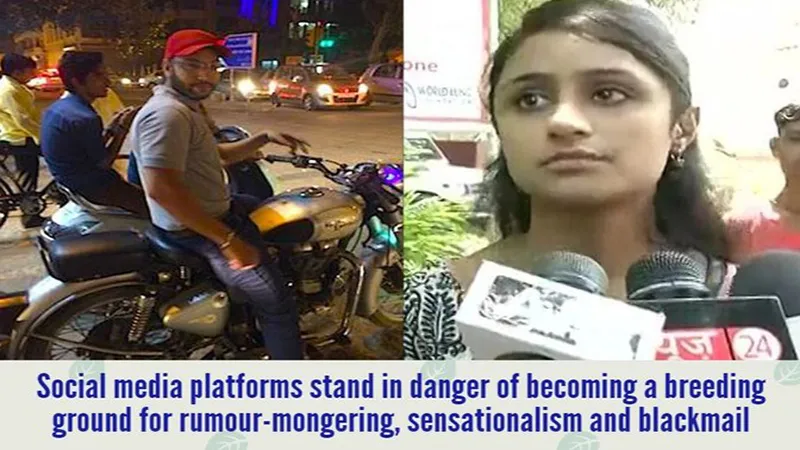-
CENTRES
Progammes & Centres
Location

"Social media has emerged as a great level-playing field in the past few years. The hitherto disenfranchised demographic groups have found an enabling tool in it. There are no hierarchies, except those ubiquitous 'blue ticks' of verification on Twitter, which is the first step towards inspiring confidence.
What it has achieved for women in particular is of great import. From being a platform for speaking the unspeakable to getting used as an SOS service, social media is the long awaited one stop shop for feeling empowered.
Let us delve into this new brand of empowerment a little more. Unlike in the pre-digital era, women can now choose to reinvent themselves, connect and collaborate with like-minded people across the world, wrap themselves cozy with the blanket of anonymity, and attempt to claim the spaces that were earlier denied to them- with just a click of button. They can also attempt to bring their offline tormentors to jail.
Social media interventions
With some reservations, it can be said that December 2012 crystallised Indian media's attitude towards violence against women. Such reports are now considered worthy of being given enough airtime. Social media contributed immensely in bringing about this change. Almost all the media houses and law enforcing agencies are looking at social media platforms to pick instances of violence and act upon them. In cities like Delhi and Bangalore, police executives actively encourage users to get in touch with them directly via tweets or texts in times of distress.
A similar trend can be seen in some ministries, the most noteworthy of them being the Ministry of External Affairs. Cabinet minister Sushma Swaraj personally responds to the tweets from hapless Indians seeking assistance on foreign soil. The International Association of Chiefs of Police, the oldest and largest organisation of police executives across the world, also advocates for optimising social media usage for crime prevention.
While social media interventions have indeed expedited action, as seen in two recent cases of arrests against harassment complaints in Delhi and Mumbai, it is worrying to note that people are using these platforms as their first choice for grievance redressal. This trend is a tell-tale sign that our police still needs to go a long way in earning common citizen's trust. It is a clarion call for them to make themselves more approachable and swift.
Social media activism
Another dimension of social media interventions is that it brings the users thrill of activism without the attached dangers. It is way safer to like and retweet pictures of molesters than confronting them on the streets. Many silent witnesses to the Anand Parbat stabbing would have happily left searing comments on a post or photograph.
Social media activism is a perfect antidote to ennui. Owing to this, the platforms stand in danger of becoming a breeding ground for rumour-mongering, sensationalism and blackmail. With ever shortening attention of users, the nuance is lost in most cases and only viral making is focussed on. Siddharth Vardarajan's 2008 piece, Stories that are too good to check, is one of the most brutal indictments of this trap of sensationalism.
Trial by social media
Vigilantism cannot substitute effective policing. In the case of social media it is even more damaging since collective guilt for inaction can be easily assuaged with a like or comment thereby leaving the chain of crime largely uninterrupted. The society needs more of timely and just judicial trials and not trials by mainstream or social media. The latter instils a false sense of safety and empowerment.
Our society lacks fool proof enforcement of law and empathy for the victim. This is what needs to change. Social media must rise up to become a responsible ally and not replicate the power struggles of the 'real' world. Only the expression of intent can be outsourced to social media, actions need to happen on ground.
Women speaking against their harassers need to be safeguarded against vindictive backlash. They are not to be used as viral makers, and further endangered, for vested interests.
(The writer is an Associate Fellow at Observer Research Foundation, Delhi)
Courtesy: The Quint"
The views expressed above belong to the author(s). ORF research and analyses now available on Telegram! Click here to access our curated content — blogs, longforms and interviews.